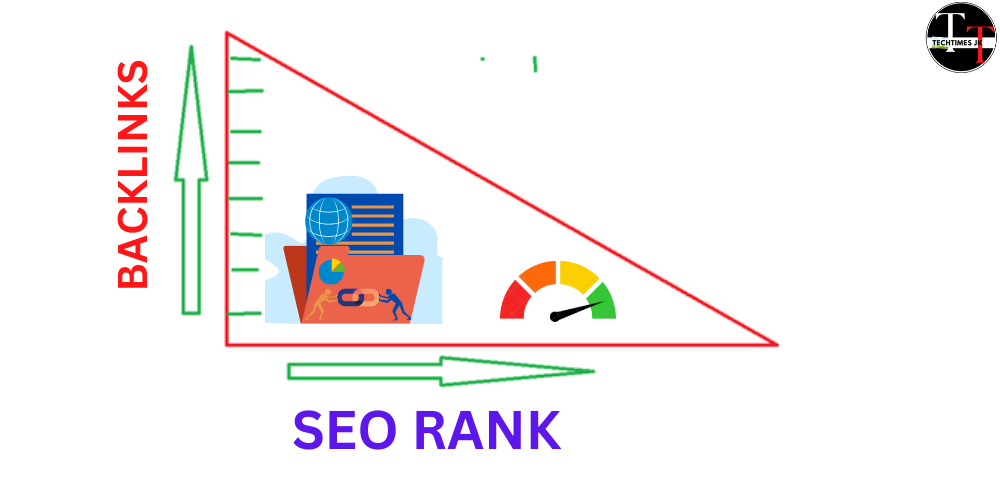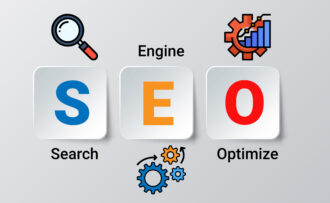What Is Backlink Building? The Ultimate Guide For Beginners To Build Backlinks
- 1 What Is a Backlink?
- 2 5 Most Important Reasons Why Link Building Is Important
- 2.1 1. Enhanced Search Engine Rankings:
- 2.2 2. Increased Website Traffic:
- 2.3 3. Establishment of Authority and Credibility:
- 2.4 4. Improved Indexing and Crawling:
- 2.5 5. Long-term Growth and Sustainability:
- 3 Can a website rank without a backlink?
- 4 What kind of backlinks can you build?
- 4.1 Nofollow backlinks
- 4.2 Dofollow backlinks
- 4.3 Editorial backlinks
- 4.4 Guest blogging backlinks
- 4.5 Free-tool backlinks
- 4.6 Authority links
- 5 Good VS Bad Backlink Practices
- 6 Best Link-Building Practices
- 6.1 1. Understand the Importance of Quality over Quantity:
- 6.2 2. Create Valuable and Shareable Content:
- 6.3 3. Optimize On-Page SEO:
- 6.4 4. Leverage Your Network:
- 6.5 5. Guest Blogging and Contributor Opportunities:
- 6.6 6. Monitor Competitor Backlinks:
- 6.7 7. Submit Your Website to Online Directories:
- 6.8 8. Engage in Content Promotion:
- 6.9 9. Monitor and Disavow Low-Quality Backlinks:
- 6.10 10. Be Patient and Persistent:
- 7 Essential Tips to get backlinks to your website
- 8 Benefits of backlink building
Backlink building is an effective tool to increase your website ranking in search engines. When you build many connections with multiple websites, search engines will crawl your website first, then your competitors. There are things that you need to focus on in backlink building, and those are relevancy, quality, and authenticity.
What Is a Backlink?
A backlink, also known as an inbound or incoming link, is a hyperlink that directs users from one webpage to another. From an SEO perspective, backlinks are crucial because they represent a vote of confidence from one site to another. When a website links to another, it is essentially vouching for the quality and credibility of that linked content. Search engines like Google consider backlinks as one of the primary factors when determining a website’s authority, relevance, and ranking in search results.
5 Most Important Reasons Why Link Building Is Important
Link building is an essential component of any comprehensive SEO strategy. Below are five key reasons why link building is crucial for online success:
1. Enhanced Search Engine Rankings:
Backlinks play a pivotal role in determining a website’s search engine ranking. Search engines use algorithms that analyze the number and quality of backlinks pointing to a particular webpage to assess its relevance and authority. Websites with a higher number of quality backlinks tend to rank higher in search results for relevant queries. Therefore, acquiring backlinks from authoritative and relevant sources is essential for improving your website’s visibility and attracting organic traffic.
2. Increased Website Traffic:
Link building not only improves your search engine rankings but also drives direct referral traffic to your website. When users come across your website’s link on other platforms, they may click through to visit your site, leading to increased traffic. Quality backlinks from reputable sources act as endorsements, encouraging users to explore your content, products, or services. By strategically building backlinks on relevant websites, you can expand your reach and attract a steady stream of qualified visitors.
3. Establishment of Authority and Credibility:
Backlinks from authoritative websites serve as validations of your website’s credibility and expertise within your industry or niche. When reputable sites link to your content, it signals to both users and search engines that your website is a reliable source of information. As you accumulate high-quality backlinks from reputable sources, your website’s authority within its niche increases, enhancing trust and credibility among your target audience. This, in turn, can lead to higher engagement, conversions, and customer loyalty.
4. Improved Indexing and Crawling:
Backlinks facilitate the discovery and indexing of your website’s content by search engine crawlers. When search engine bots encounter backlinks pointing to your site from other reputable domains, they follow these links to discover and index your pages. This process helps search engines understand the structure and relevance of your website’s content, leading to improved indexing and better visibility in search results. By actively building quality backlinks, you can ensure that your content is crawled and indexed more efficiently, leading to faster inclusion in search engine databases.
5. Long-term Growth and Sustainability:
Link building is not just about short-term gains; it lays the foundation for long-term growth and sustainability in your online presence. High-quality backlinks from reputable sources continue to benefit your website over time, driving steady traffic, improving search engine rankings, and enhancing credibility. Unlike some SEO tactics that may yield temporary results, a well-executed link-building strategy can contribute to the long-term success and stability of your website’s online visibility.
In summary, link building is a critical aspect of SEO that offers numerous benefits, including improved search engine rankings, increased website traffic, establishment of authority and credibility, improved indexing and crawling, and long-term growth and sustainability. By prioritizing link building as part of your overall SEO strategy, you can strengthen your website’s online presence, attract more visitors, and achieve sustainable success in the digital landscape.
Can a website rank without a backlink?
Backlinks help websites to get popularity in search engines. With backlinks, it is easier for a website to rank in search engines. According to Google, backlinks are crucial to increasing a website’s ranks in search engines if they are created with high-quality content. It is essential to focus on on-page SEO, but to rank your website high in the search engine; you have to do backlink building.
If you do not focus on it, Google cannot crawl your web pages even if they contain the exact information. One thing to remember while building links is to always focus on creating high-quality links because they are more worthy than low-quality ones.
What kind of backlinks can you build?
Because backlinks are crucial, knowing what kind of links you can use is essential. Below is the comprehensive list of backlinks
Nofollow backlinks
- Inform Google to ignore a link
- Dont transfer value from one site to another
- Not so helpful in improving your website visibility or search engine rankings
Dofollow backlinks
- Highly demanded backlink type
- Improve the website search ranking and visibility
Editorial backlinks
- Links that are placed within the high-quality content
- The content must be engaging and shareable,
- Utilize the SEO practices
Guest blogging backlinks
- Key piece of building backlinks
- Build links from a well-established website
- It also includes editorial backlinks to the site
Free-tool backlinks
- Offers valuable links that have a profound and long-lasting impact on your website
- The most vital type of link that can increase the reach of your website
Authority links
- Boost the site ranking in the search engines
- Considered as high-quality and powerful backlinks
- Describe the quality of the website or web page
Good VS Bad Backlink Practices
Differentiating between good and bad link-building practices:
| Good Link Building Practices | Bad Link Building Practices |
|---|---|
| 1. Creating High-Quality Content | 1. Buying Links |
| 2. Natural Link Acquisition | 2. Participating in Link Schemes |
| 3. Guest Blogging | 3. Link Farms |
| 4. Social Media Promotion | 4. Irrelevant Link Building |
| 5. Reclaiming Lost Links | 5. Private Blog Networks (PBNs) |
Good Link Building Practices:
- Creating High-Quality Content: Focus on producing valuable and informative content that naturally attracts backlinks from authoritative sources.
- Natural Link Acquisition: Earn backlinks organically through genuine relationships, content promotion, and ethical SEO practices.
- Guest Blogging: Contribute valuable content to reputable websites within your niche, providing genuine value to readers.
- Social Media Promotion: Share content on social media platforms to increase visibility and encourage natural sharing and linking.
- Reclaiming Lost Links: Identify broken or lost backlinks and reach out to website owners to reclaim or replace them.
Bad Link Building Practices:
- Buying Links: Purchasing backlinks from dubious sources to manipulate search rankings.
- Participating in Link Schemes: Engaging in link schemes or link farms where low-quality websites exchange links in bulk.
- Link Farms: Creating or participating in networks of interlinked blogs solely for the purpose of manipulating search rankings.
- Irrelevant Link Building: Obtaining backlinks from irrelevant or unrelated websites that do not add value to your target audience.
- Private Blog Networks (PBNs): Creating a network of interlinked blogs solely for the purpose of manipulating search rankings.
By focusing on good link-building practices and avoiding manipulative tactics, you can build a strong, authoritative online presence that benefits both users and search engines.
Best Link-Building Practices
1. Understand the Importance of Quality over Quantity:
Focus on acquiring high-quality backlinks from reputable and relevant websites rather than aiming for a large quantity of backlinks. Quality backlinks carry more weight in search engine algorithms and have a greater impact on your website’s authority and rankings.
2. Create Valuable and Shareable Content:
Produce high-quality, informative, and engaging content that naturally attracts backlinks from other websites. Content that provides unique insights solves problems, or offers valuable resources is more likely to be shared and linked to by other webmasters and bloggers.
3. Optimize On-Page SEO:
Optimize your website’s on-page elements, including meta tags, headings, and internal linking structure, to make it more search engine-friendly. Well-optimized pages are more likely to attract organic traffic and earn backlinks from other websites.
4. Leverage Your Network:
Reach out to friends, colleagues, industry peers, and customers who have their websites or blogs. Inform them about your content and politely request them to consider linking to it if they find it valuable. Networking can be a valuable source of initial backlinks for beginners.
5. Guest Blogging and Contributor Opportunities:
Identify reputable websites, blogs, and online publications within your niche that accept guest contributions. Offer to write high-quality guest posts that provide valuable insights or expertise to their audience. In return, you can include a backlink to your website within the author bio or content body.
6. Monitor Competitor Backlinks:
Analyze your competitors’ backlink profiles using SEO tools like Ahrefs, Moz, or SEMrush. Identify high-quality websites linking to your competitors and reach out to them to request similar backlinks for your website. However, ensure your content offers unique value to convince them to link to you.
7. Submit Your Website to Online Directories:
Submit your website to reputable online directories and industry-specific directories. While some directories may not carry as much weight as they used to in SEO, relevant directories can still provide valuable backlinks and help improve your website’s visibility.
8. Engage in Content Promotion:
Actively promote your content through social media channels, email newsletters, forums, and online communities. The more exposure your content receives, the higher the likelihood of it being discovered and linked to by other websites.
9. Monitor and Disavow Low-Quality Backlinks:
Regularly monitor your backlink profile using tools like Google Search Console or third-party SEO tools. Identify and disavow low-quality or spammy backlinks that could potentially harm your website’s rankings. Google’s Disavow Links tool allows you to request Google to ignore specific backlinks pointing to your site.
10. Be Patient and Persistent:
Building a strong backlink profile takes time and consistent effort. Be patient and persistent in your link-building endeavors, and focus on creating valuable content that naturally attracts backlinks over time. Avoid shortcuts or black hat SEO tactics that could result in penalties from search engines.
By following these link-building tips for beginners and focusing on ethical and effective strategies, you can gradually build a strong backlink profile that improves your website’s authority, visibility, and organic traffic. Remember to prioritize quality over quantity and consistently provide value to your target audience through your content and outreach efforts.
Essential Tips to get backlinks to your website

Some of the essential strategies are demonstrated below –
- Reach out to the unliked brand owners and ask them to get a quality backlink
- Create backlinks with the journalist’s publications by using HARO tools. When you give your content to the website owner, they will link back with you in return, and you will get quality links.
- Another tip for backlink building is to write a quality guest post and publish it on the authoritative website.
- Avoid using low-quality content, as it may reduce your website traffic by breaking the quality links.
- Always keep an eye on your competitor’s backlink profile to empower your backlink-building process. Get ideas about how they are building links and connecting with other high-quality websites.
- Along with these, building and improving broken backlinks are also significant. If there is any broken link present, you create a new link as a solution to the broken link.
- Use infographics to build quality links, as the visual data is easy to understand and can attract higher customer traffic.
Benefits of backlink building
1. Improved Search Engine Rankings:
Backlinks are among the top-ranking factors considered by search engines like Google. When reputable websites link to your content, it signals to search engines that your site contains valuable information worth referencing. Consequently, search engines may reward your website with higher rankings in search results, leading to increased organic traffic.
2. Increased Website Traffic:
Quality backlinks from relevant and authoritative websites can drive referral traffic to your site. Users who come across your link on other platforms may click through to explore your content, resulting in an influx of new visitors. This traffic not only boosts your site’s visibility but also enhances the potential for engagement and conversions.
3. Enhanced Domain Authority:
Backlinks contribute to your website’s domain authority, a metric developed by Moz that predicts how well a website will rank on search engine results pages (SERPs). Obtaining backlinks from high-authority domains sends positive signals to search engines, indicating that your website is a trusted source within its niche. Over time, as you accumulate quality backlinks, your domain authority is likely to increase, further bolstering your online reputation.
4. Increased Brand Visibility and Recognition:
Backlinks from reputable websites expose your brand to wider audiences, fostering brand recognition and trust. When users encounter your website mentioned across various platforms, they are more likely to perceive your brand as credible and authoritative in its field. This increased visibility not only attracts potential customers but also strengthens brand loyalty among existing ones.
5. Networking and Relationship Building:
The process of acquiring backlinks often involves building relationships with other website owners, bloggers, and influencers within your industry. Collaborating with these stakeholders not only facilitates link acquisition but also opens doors to potential partnerships, guest blogging opportunities, and co-marketing ventures. These relationships can be invaluable for expanding your network and gaining insights into your target audience.
6. Faster Indexing and Crawling:
Backlinks serve as pathways for search engine bots to discover and index new web pages. When reputable sites link to your content, search engine crawlers are more likely to crawl and index your pages promptly. This can lead to faster inclusion in search engine databases, ensuring that your content appears in relevant search results sooner.
7. Competitive Advantage:
In competitive industries, backlink building can provide a significant edge over competitors. Securing high-quality backlinks from authoritative sources not only boosts your SEO efforts but also sets you apart as a leader in your field. By consistently building a diverse portfolio of backlinks, you establish a strong online presence that is difficult for competitors to replicate quickly.
8. Long-term Sustainability:
Unlike some SEO tactics that yield short-term gains, backlink building offers long-term benefits. High-quality backlinks tend to remain valuable assets for your website over time, continuing to drive traffic, improve rankings, and enhance credibility. Additionally, as your website gains authority, it becomes more attractive to other web admins seeking to link to authoritative sources, creating a virtuous cycle of link acquisition.
In conclusion, backlink building is a fundamental aspect of SEO that offers a multitude of benefits, including improved search engine rankings, increased website traffic, enhanced domain authority, brand visibility, networking opportunities, faster indexing, competitive advantage, and long-term sustainability. Incorporating a strategic backlink-building approach into your SEO strategy can significantly enhance your online presence and contribute to the overall success of your website.




















